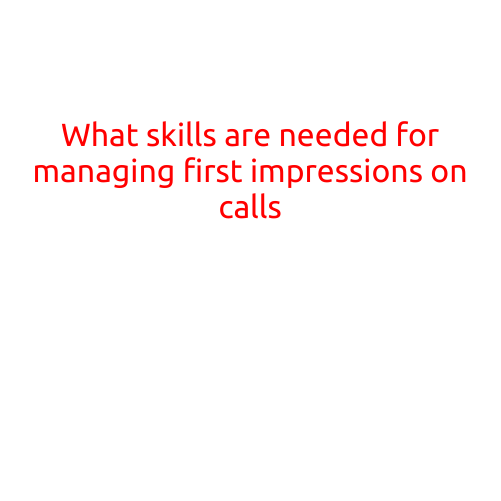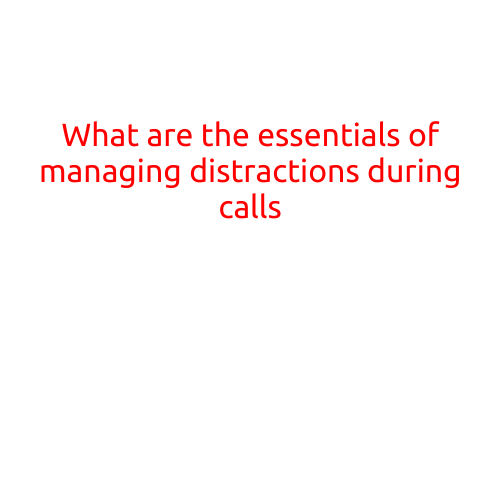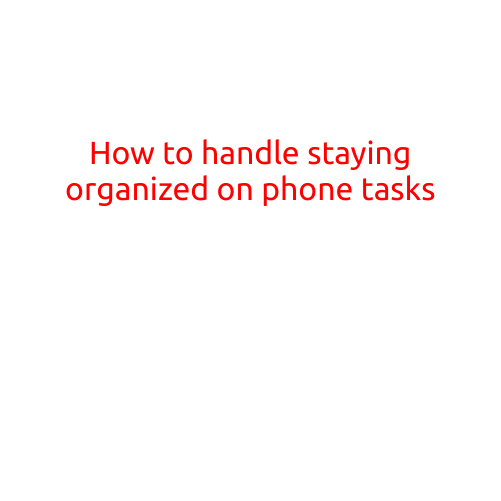
What Skills are Needed for Managing First Impressions on Calls
In today’s fast-paced business environment, making a good first impression on calls is crucial for building trust, establishing credibility, and securing new opportunities. Whether you’re a sales representative, customer service agent, or entrepreneur, your ability to manage first impressions on calls can make all the difference in your professional success. In this article, we’ll explore the essential skills you need to develop to make a lasting impression on your callers.
Effective Communication Skills
Good communication is the foundation of making a positive first impression on calls. To effectively communicate, you need to be clear, concise, and articulate. Practice speaking slowly and deliberately, avoiding jargon and technical terms that may confuse your caller. Make sure to listen actively, asking clarifying questions to ensure you understand the caller’s needs and concerns.
Positive Body Language and Tone
Your tone and body language, although not visible to the caller, can still affect the tone of the conversation. Speak in a warm, friendly, and professional tone, avoiding apologetic or hesitant tones that can convey uncertainty. Maintain good posture, even when you’re sitting, as this can help you feel more confident and assertive.
Active Listening and Empathy
Show your caller that you’re genuinely interested in their concerns by actively listening to what they have to say. Repeat back what you’ve understood to ensure you’re on the same page, and demonstrate empathy through phrases such as “I understand” or “That sounds challenging.”
Problem-Solving and Critical Thinking
When dealing with a problem or issue on a call, your ability to think critically and come up with creative solutions is crucial. Practice active problem-solving skills, asking questions to clarify the issue and brainstorming potential solutions. Consider the caller’s perspective and be willing to adapt your approach as needed.
Adaptability and Flexibility
No two calls are alike, and you need to be adaptable to changing circumstances. Be prepared to adjust your approach based on the caller’s feedback, and remain calm and composed in the face of unexpected challenges.
Confidence and Positivity
A positive attitude and confident demeanor can go a long way in making a good first impression on calls. Believe in yourself and your abilities, and carry yourself with confidence. Avoid apologetic or hesitant language, and instead, focus on the value you can bring to the caller.
Professionalism and Knowledge
Demonstrate your expertise and knowledge of your product or service by being well-prepared and informed. Stay up-to-date on industry trends and developments, and be prepared to answer common questions and address concerns.
Time Management and Organization
Manage your time effectively, ensuring that you have enough time to address each caller’s concerns without rushing. Stay organized, using tools such as notes and checklists to keep track of your conversation and follow-up actions.
Follow-Up and Follow-Through
To ensure a positive first impression, be sure to follow up with the caller after the call to provide any additional information or support needed. Demonstrate your commitment to providing excellent service and build trust with your caller by following through on your promises.
In conclusion, managing first impressions on calls requires a combination of essential skills, including effective communication, positive body language and tone, active listening and empathy, problem-solving and critical thinking, adaptability and flexibility, confidence and positivity, professionalism and knowledge, time management and organization, and follow-up and follow-through. By developing these skills, you can build trust and credibility with your callers, setting the stage for successful relationships and professional growth.





